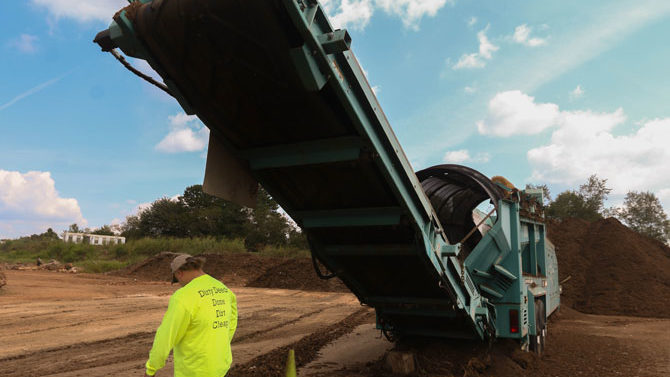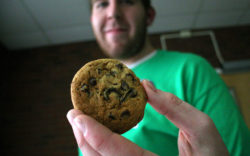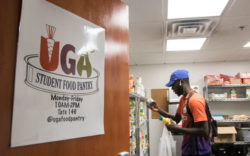Compared to other habits associated with sustainable eating—buying local, organic or naturally grown food—it seems Athenians may be a little slower on the uptake when it comes to one crucial step: food scrap composting.
One recent training workshop put on by UGA’s sustainable agriculture program taught a group of Athens-Clarke County employees, farmers and even a restaurateur how composting is an important piece of the proverbial pie. Jessica Cudnik, a program assistant, said the workshop was meant to “train the trainers.” Thirty-two participants gathered for two days on campus to learn the science of composting. The hope is that the attendees will become the local champions in their communities in the effort to divert food scraps and other organic material from landfills.
Two-thirds of the waste in our landfills is organic material—stuff we could be composting. Many of the participants who attended the training were municipal employees—city or county workers who wanted to learn how to roll out a composting program back home. As part of their training, the group toured the commercial composting facility at the ACC landfill.
For now, the facility only collects biosolids produced by our waste treatment plant and leaf and limb debris. Adding food scrap collection to the mix, says Solid Waste Director Suki Janssen, may be a tough sell. “It’s hard to make a business model work right now in the state of Georgia, where you have no legislation on food scrap recycling,” she says. Athens’ composting facility is one of four facilities across the state.
West Coast cities like San Francisco and Seattle have very progressive legislation when it comes to food scrap composting. Beyond one nonprofit and a few employees in the Environmental Protection Division, says Janssen, “Georgia is void of leadership when it comes to waste reduction goals.”
Janssen adds that most of the composting efforts are driven by political will or community demand. Demand is exactly what convinced Kristen Baskin to create Let Us Compost. “Basically, I wanted to use a compost service in Athens, but we didn’t have one, so I started one,” she says.
Baskin earned her Georgia Master Composter certification through the solid waste department in 2012, and Let Us Compost was her final project. Today, hers is the only service in town that collects food scraps from businesses or residents.
Baskin says she’s seen the knowledge of composting grow over the last few years, especially among children. “When I go into classrooms, it’s amazing. I’ll ask, ‘Hey, who knows what compost is?’ and every single kid raises their hand,” she says. “It doesn’t matter which school I go to.” Much like recycling took root with kids in the early ’90s, Baskin hopes composting will be normal once today’s children grow up.
Today’s residential composters are few and far between, says Janssen. This is partly because separating out food scraps takes extra effort, but mostly, it seems to be a matter of cost. “It’s hard for any of us to encourage people to reduce waste if it’s going to cost them money,” she says.
The ACC Mayor and Commission is interested in exploring how the county can reduce waste, so Janssen and the solid waste department are launching a food scrap collection pilot program this fall to see if adding compost collection is financially viable for them to take on.
Showing people how composting preserves our land, resources and dollars in the long run, says Cudnik, is one way to garner support for food scrap collections and initiatives like it. “Compost is the new black gold,” she jokes, but in truth, composting the leftover skin from that organic, locally grown onion closes the sustainability loop. It’s something worth considering.
Like what you just read? Support Flagpole by making a donation today. Every dollar you give helps fund our ongoing mission to provide Athens with quality, independent journalism.










